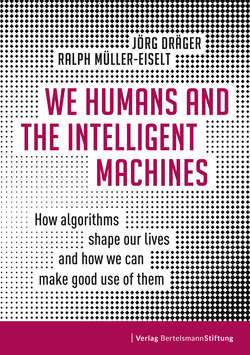Читать книгу We Humans and the Intelligent Machines - Jörg Dräger - Страница 16
На сайте Литреса книга снята с продажи.
Flawed reasoning: Making mistakes and discriminating
ОглавлениеTim Schultheiss and Hakan Yilmaz have a lot in common. Both are looking for an apprenticeship. Both were born in Germany in 1996 and are German citizens. Both attend a secondary school in a medium-sized town. Their biographies are almost identical – apart from their names. Tim and Hakan do not really exist. The two were invented by researchers for a study on discrimination in Germany’s vocational training system, commissioned by the Expert Council of German Foundations on Integration and Migration.4
The researchers sent applications from Tim and Hakan to 1,794 companies. Result: Tim was invited to interview considerably more often than Hakan, whose success rate was 50 percent lower. Such discrimination is higher for small companies than for large ones, and higher for automotive technicians than for office clerks. Despite any differences in the details, however, the overall findings are clear: Even when they have the same qualifications as other candidates, applicants with a Turkish name are clearly at a disadvantage when they go looking for a position as an apprentice in Germany.
Other studies show discrimination based on heritage in many countries: in Ireland against German names, in the Netherlands against Surinamese, in Norway against Pakistani, in Switzerland against Portuguese, in Spain against Moroccan, in the US against typically African-American names such as Lakisha and Jamal, as opposed to names such as Emily and Greg.5 This discrimination, whether intentional or not, is not limited to the labor market. It shapes our everyday lives. At universities in the US, a field trial has shown that professors working with PhD candidates are more likely to interview white men than women; Hispanics, blacks, Chinese and Indians have also been disadvantaged.
We are guided in important decisions by mental associations and unconsciously activated stereotypes. Our judgments and also our perception and our thinking are subject to systematic errors. These so-called cognitive biases have been documented by psychologists for decades. They seem to be almost universally human and unconscious despite the various ways they are expressed.6
Well over 100 such malfunctions in our thinking are known.7 Many of these have been researched by psychologist Daniel Kahneman, who was awarded the Nobel Prize for his work on these shortcomings. This is how Kahneman has summed up his many decades of empirical research on the way humans process information: “The confidence we experience as we make a judgment is not a reasoned evaluation of the probability that it is right. Confidence is a feeling, one determined mostly by the coherence of the story and by the ease with which it comes to mind, even when the evidence for the story is sparse and unreliable.”8
Cognitive biases lead to a wide variety of misjudgments. When a plane has just crashed and the media report about it, people temporarily estimate the frequency of plane accidents to be higher than usual, and higher than it actually is. We overestimate the risk of being murdered and underestimate the likelihood of having a stroke. People react more favorably towards others if they find them outwardly attractive. For example, they judge the same offense more mildly when it has been perpetrated by a good-looking defendant and consider attractive candidates for political office to be more knowledgeable.9
In other words, in many areas of life people act neither rationally nor fairly. We use inappropriate criteria without necessarily being aware of it. In our memories, we are often firmly convinced that we have solely assessed a person’s expertise or competence, even if it was their appearance, skin color or gender that ultimately tipped the scales. Some misjudgments in everyday life are harmless or even amusing. However, systematic biases can also have significant negative social consequences. Human rights are based on the principle of equality and protection against discrimination. We should therefore use the “intelligence” offered by machines to create equitable opportunities for all demographic groups.
